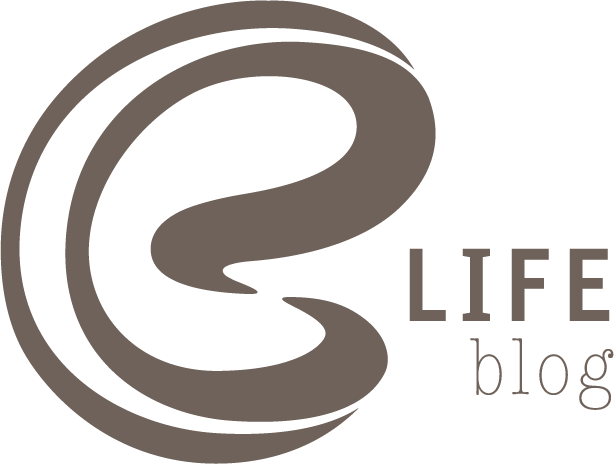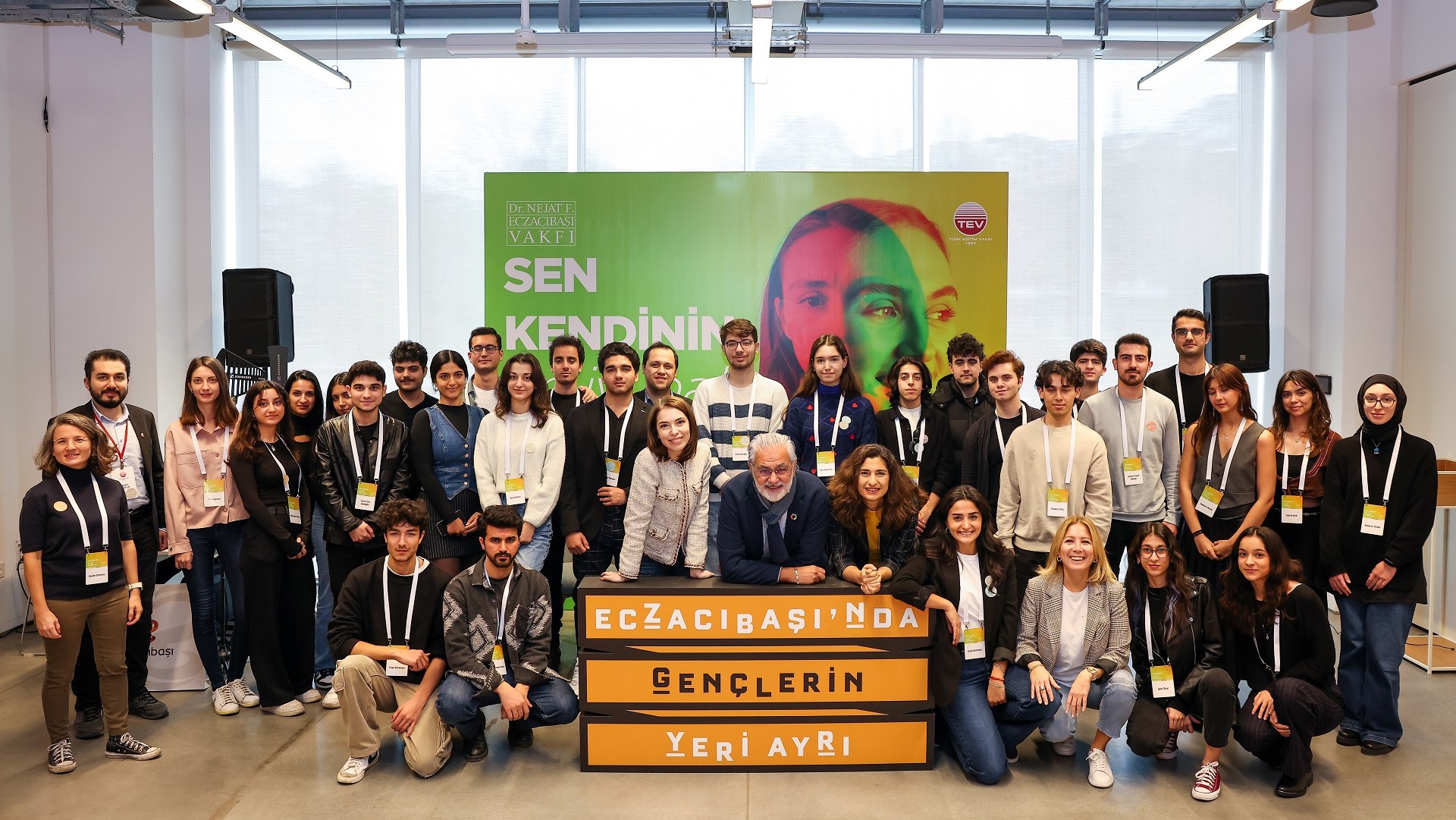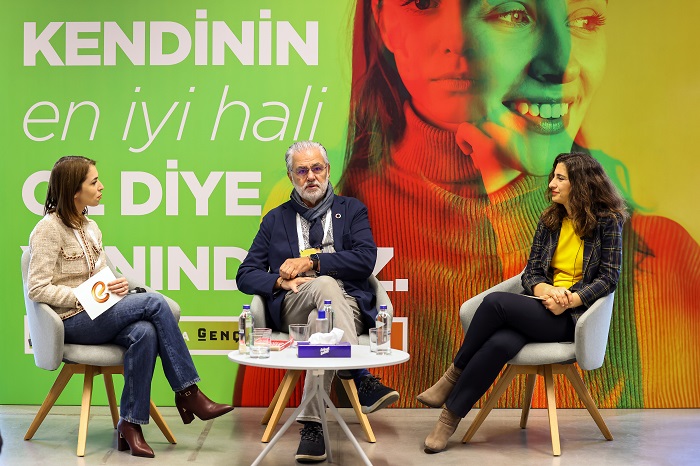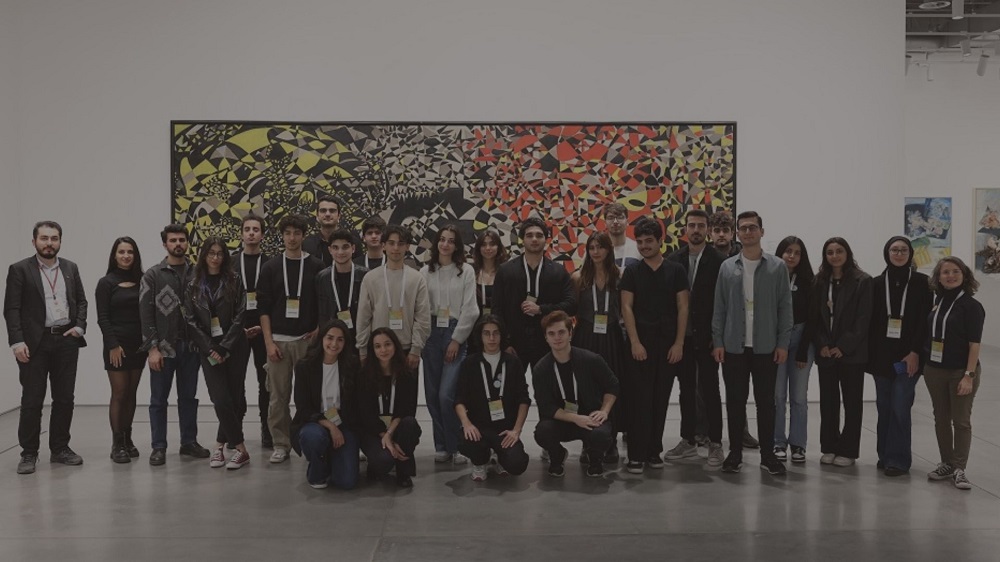With the motto "Young people matter at Eczacıbaşı," we aim to empower young people in all areas of life through our support in education, science, culture, arts, and sports.
The Dr. Nejat F. Eczacıbaşı Undergraduate Scholarship Program, established in partnership with the Turkish Education Foundation (TEV), is one of our key initiatives in this direction.
We gathered with our scholarship recipients at Istanbul Modern to discuss holistic well-being, future competencies, and their preparation for what lies ahead.
The event began with a speech by İlkay Yıldırım Akalın, Eczacıbaşı Holding Corporate Communications Director and Secretary General of Dr. Nejat F. Eczacıbaşı Foundation, followed by a conversation between Eylem Özgür, Eczacıbaşı Group Human Resources Group President, and Prof. Dr. Erhan Erkut, Founder of YetGen.
The meeting at Istanbul Modern began with the opening speech by İlkay Yıldırım Akalın, Eczacıbaşı Holding Corporate Communications Director and Secretary General of Dr. Nejat F. Eczacıbaşı Foundation. Marking her 27th year with Eczacıbaşı, Akalın shared personal anecdotes in a speech that both guided and inspired young people: "After graduating from university, I felt disconnected from the private sector and couldn't relate to that world. I knew I needed to invest my time and efforts in work I truly enjoyed. I didn't want to work for a company driven solely by profit—it had to be one with great goals that took meaningful steps to benefit people. When I joined Eczacıbaşı, I didn't fully grasp it, but I later deeply felt the founding philosophy that matched exactly this desire." Speaking about the Eczacıbaşı Group's founding philosophy, Akalın explained that from its very beginning, Eczacıbaşı has focused on creating both economic and social impact, developing brands that have transformed Turkey's living habits and continue to pioneer in their sectors today. She advised young people to first understand themselves, discover their life purpose, and then find an environment that aligns with their values. She emphasized that Eczacıbaşı provides an ecosystem where young people can find such meaning.
Following Akalın's speech, Eczacıbaşı Holding Talent Management Director Buse Kasımbeyli moderated a discussion where Eczacıbaşı Group Human Resources Group President Eylem Özgür and YetGen Founder Prof. Dr. Erhan Erkut shared their insights on future competencies and workplace expectations.
Buse Kasımbeyli: We are talking about the competencies of the future, but when will this future come—or has it already arrived?
Prof. Dr. Erhan Erkut: The future has already arrived. I first mentioned "21st Century Competencies" 20 years ago. Though the first quarter of the century is already over, we're still discussing these competencies. At the 2009 World Business Forum, American management scientist Gary Hamel made crucial observations. He noted that in the last century, organizations expected obedience, loyalty, diligence, thoroughness, and intelligence. "But now these qualities have become commodities—mere commercial assets," Hamel explained. "In the 21st century, these traits are no longer sufficient. The expectations of this century are initiative, entrepreneurship, creativity, passion, ambition, and excitement."
If you're still seeking last century's competencies, you won't survive in this age. A structure where all vision, initiative, ideas, and products flow only from the top cannot last. Organizations must ensure these values flow through all levels.
The key 21st century competencies are “learning and innovation competencies” “creativity and innovation” “critical thinking and problem solving” and “communication and cooperation.” While organizations now recognize the importance of teamwork and communication, critical thinking remains undervalued. Everyone seeks innovation, yet few realize that critical thinking drives it. Innovation springs from questioning the status quo. In discussing creativity and innovation, I emphasize both generating new ideas and implementing them. Forward-thinking companies now run "intrapreneurship" programs. They create laboratories where employees can bring their ideas to life, supporting this spirit of initiative.
Buse Kasımbeyli: At this point, I'd like to turn to Ms. Eylem and ask: What is the equivalent of these competencies in business life?
Eylem Özgür: Each era differs from the previous one, but the changes and disruption are more pronounced today. We're living in the age of the Internet. When I was at university, sending emails was considered cutting-edge technology in the computer lab. Now we're discussing artificial intelligence. The pace of development has been remarkable.
While technical competencies are crucial and increasingly in demand, adaptability and continuous learning are paramount. Survival requires adaptation. We shouldn't fear concepts like artificial intelligence and digitalization; they don't invalidate our existing knowledge. Rather, this era demands a fresh perspective. I graduated in 1998. Back then, the technical competencies we gained during our four-year degree remained relevant for 5–6 years. That window is shrinking rapidly. Today, what you learn in your first year becomes outdated by the next. This new world demands constant updating. We can view this either as a burden or embrace it as a new way of life.
Business life reflects these same changes. Our work methods, problem-solving approaches, and tools are evolving rapidly. Yet the core competencies—analyzing situations, drawing conclusions, and developing strategies—remain as vital as ever. These skills were just as important twenty years ago as they are today. The key difference lies in our tools: whereas we once had few manual options, we now have numerous powerful alternatives. Tasks that once took two days can now be completed in 30 seconds using AI-powered tools. Information sharing has become democratized—virtually any piece of information is accessible to anyone. While we can debate the validity or reliability of this information, access itself isn't restricted. Consequently, businesses seek individuals who understand global trends and can adapt accordingly. By adaptability, I don't mean mere compliance—I mean the ability to harmonize with change. The more passionate employees are, the more readily they embrace and learn new things.
Prof. Dr. Erhan Erkut: Let me add to what Ms. Eylem mentioned.
The golden competency is adaptability. How do you develop this skill? The key is to step out of your comfort zone. Don't remain in one place—go everywhere and talk to everyone. Whether speaking with a manager or an entry-level worker, you should feel equally at ease. As you practice leaving your comfort zone, you'll find it easier to adapt to new countries or technologies. It's better to embrace innovations with excitement rather than fear.
The second vital competency is rapid learning. Self-direction and proactive behavior are crucial in this regard. Another essential skill is psychological resilience. In adapting to our rapidly changing world, you will inevitably stumble and fall. What matters is your ability to get back up. This resilience is invaluable, and you develop it through experiencing setbacks.
Of course, people who are adaptable, quick to learn, and psychologically resilient must also possess a conscience. Without it, dangerous outcomes may emerge. This isn't merely a 21st-century competency—it's a fundamental human trait.
Buse Kasımbeyli: Mr. Erhan, let's continue with you. Are these competencies reflected in academia?
Prof. Dr. Erhan Erkut: Unfortunately, universities don't foster these competencies. It's no simple task. I've discussed this in my book, which I titled 'The System is Powerless, Education is on You.' I identified ten reasons for this but let me share the top three. First, university professors often lack these competencies themselves. Second, the system doesn't recognize their importance. Third, students don't demand them. To develop these skills, we need an education system that places students at the center and employs active learning methods, rather than simply transferring knowledge from experts to novices. Currently, Turkey needs to progress further in this direction. The solution is clear: through more active learning, projects, and presentations, we can enhance competencies in teamwork, communication, problem-solving, and analytical thinking. However, it's crucial to note that these competencies should be developed starting in kindergarten and primary school.
What should students do? Keep your university learning, but don't assume it's sufficient. Develop your competencies through sports teams, student clubs, voluntary work in NGOs, and internships. Internships are particularly crucial. Don't dismiss them by thinking, 'I'm not required to do an internship' or 'One internship is enough.' Remember: In job interviews, HR professionals won't ask about your thermodynamics grade. Instead, they'll ask about your involvement in social clubs, your initiative-taking, and how you handled and recovered from setbacks.
Buse Kasımbeyli: Ms. Eylem, how do we prepare young people who cross paths with Eczacıbaşı for the future?
Eylem Özgür: We consider Dr Nejat F. Eczacıbaşı Foundation scholarship recipients as Eczacıbaşı employees. I can share insights about their experience as employees and how we support them.
Our top priority is nurturing innovative thinking skills. We emphasize supporting passion, innovative thinking, and rapid learning.
Our "Come and Discover" program serves both high school and university students. The high school program focuses on career exploration, while the university program demonstrates the diverse roles available within a single profession. For instance, if you're a mechanical engineer, we show you the various sectors and areas within Eczacıbaşı where you can apply your skills. We explain these opportunities through practical business functions rather than academic disciplines. We've reached nearly 20,000 students, with participation growing exponentially each year. Young Eczacıbaşı executives share their career journeys and experiences as part of the program.
We've also run internship programs for about 20 years, including our special "Career Test Drive" initiative. At Eczacıbaşı, internships are treated as seriously as full-time positions. Summer interns who wish to continue can join the Career Test Drive program, becoming part-time colleagues who work during their school breaks. We treat them as assistant specialists, making them prime candidates for open positions. In 2023, half of our new graduate hires came from our intern pool.
Our competition programs include Markatlon, where young people develop creative marketing ideas, and EnGenius for innovative engineering solutions. Both competitions emphasize teamwork, fostering collaboration and collective problem-solving skills.
Youth engagement in business is a core value for all Eczacıbaşı executives. We recognize young people as society's transformative force. This conviction drives all Eczacıbaşı employees to deeply invest in supporting young talent throughout their careers.
Buse Kasımbeyli: I would like us to focus now on the issue of artificial intelligence. How should we view it? What will it bring and change? Will it replace us in our professions?
Eylem Özgür: At its core, artificial intelligence is an opportunity created by human intelligence. Yes, it will eliminate some jobs—specifically, those involving repetitive, mindless tasks. Some people may be concerned about this. However, for those who apply creative thinking to their work, both intellectually and physically, artificial intelligence will never be a threat. That's why we must view it as an opportunity.
Prof. Dr. Erhan Erkut: Personally, I see it as a tremendous opportunity. However, from a broader human perspective, the picture is more complex. Technology has always disrupted employment. In the past, its ability to complement human work outweighed its tendency to replace it, so overall unemployment didn't rise. Now, the balance has shifted—replacement potential exceeds complementary potential. Consider navigation: while GPS helped me get here today, soon cars won't need drivers at all. What happens then to professional drivers?
In this context, artificial intelligence won't take over entire professions—rather, it will take over specific tasks. Any task that can be algorithmically defined and repeated will be automated. Indeed, this is already happening.
And that's actually positive. Routine tasks don't deserve human attention—their automation frees up time for creativity. However, this raises a crucial question: will companies need as many employees? Work that once required ten people might now need only three to five. What happens to the others? We must face it: increased unemployment is inevitable. Remember this: artificial intelligence won't take your job—someone who uses it better than you will. Long-term, the key factor won't be whether work is cognitive or manual, but whether it's routine. Some professions will remain resistant to AI: gardening, painting, woodworking, carpentry, auto mechanics, electrical work, and plumbing. Robots won't replace these trades—or if they could, it would be prohibitively expensive. These fields should remain stable. However, jobs heavy in routine cognitive work will see significant displacement.
Yet for educated, thoughtful individuals, moving beyond routine work presents exciting opportunities. We're approaching an era where people might work 15 hours but get paid for 40. New professions like Leisure Management will emerge. People will work two days from home and one day from the office. Young people face an exciting future with more time for arts and sports.
Finally, remember this: don't be afraid. Play your cards right, and you'll find opportunities to advance your career rapidly.
I believe adaptability is the most crucial skill we'll need for the future. We live in a world that's constantly evolving and transforming. I feel ready to adapt to these changes and grow. Eczacıbaşı's support is particularly valuable in this journey. These events bring students together to share experiences and foster a sense of community, which greatly helps our adaptation. The interviews, speeches, and events showing how to apply these concepts to professional life are especially valuable.
The main challenge for me is overcoming anxiety about the future—something we all face. This anxiety can lead to poor decisions. As a young person, I've identified three key elements for peace of mind, all stemming from this anxiety: setting a goal, making progress toward it, and achieving results. This scholarship program addresses all three needs. It guides us in goal-setting, while Eczacıbaşı's programs and competitions help us progress toward these goals. Through mentoring programs and events, we meet successful individuals who inspire us and show what's possible. It's truly motivating. At Eczacıbaşı, young people matter—we can feel it. They don't call us scholarship holders at events but rather members of Eczacıbaşı. This perfectly demonstrates their commitment to their values.
Today at Istanbul Modern, we participated in the Transformation of Paper Workshop before the talk. While I'm an art enthusiast who typically prefers working alone, today we collaborated with friends. It was wonderful to transform paper alongside people I had just met and witness the transformation together. I discovered that creating as a group brought me even more joy.
During the talk, we discussed the competencies of the future, and I can connect what we did in the workshop to three of these: flexibility, sustainability, and creativity. Paper doesn't need to follow a simple use-and-discard cycle. It can be stretched, recycled into different forms, and repurposed—embodying the principle of sustainability. As for creativity, making things with your own hands, being fully present in the work, and seeing how paper responds differently to various manipulations nurtures one's creative spirit. Being part of an organization that tells young people "you matter" is incredibly valuable to us. It means so much to have someone who truly listens and answers our questions. That's why the "Young people matter at Eczacıbaşı" approach resonates so deeply.
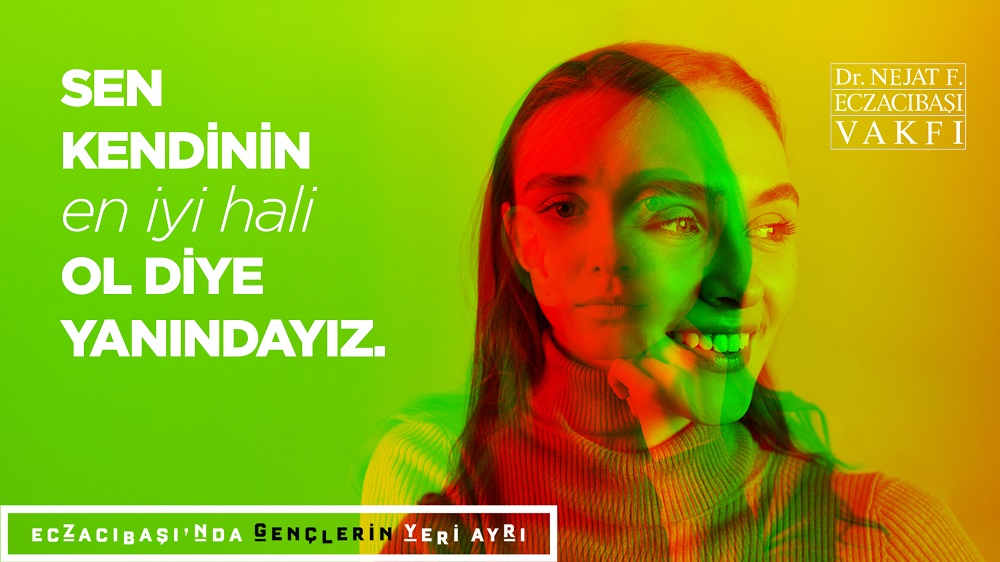
The Dr. Nejat F. Eczacıbaşı Undergraduate Scholarship Program supports young people's career development through bootcamps, competitions, training programs, and facility visits, while also encouraging their social engagement through sports, cultural, and artistic opportunities. During the program's inaugural year (2023-2024 academic year), we provided educational support to 500 students, including 400 female students from the earthquake-affected region.
